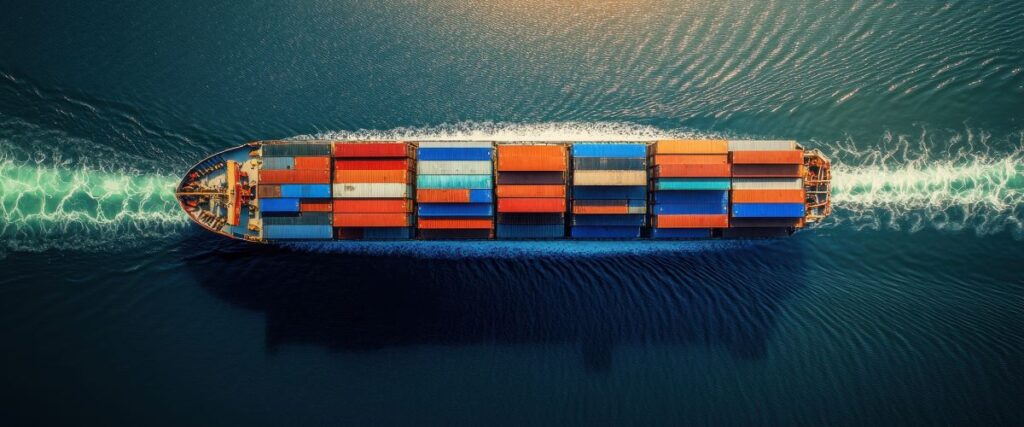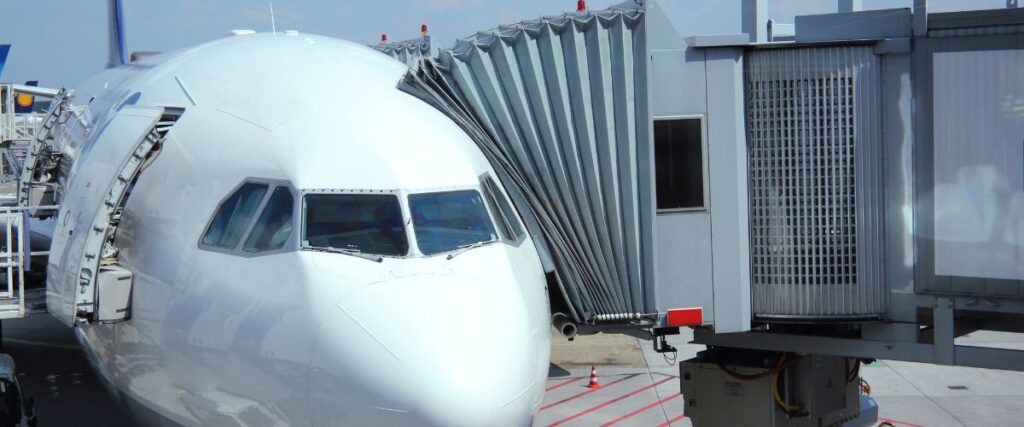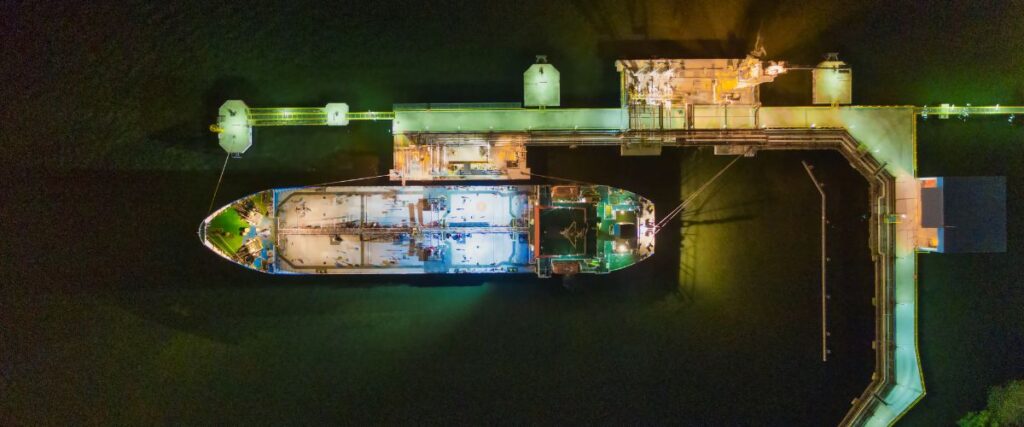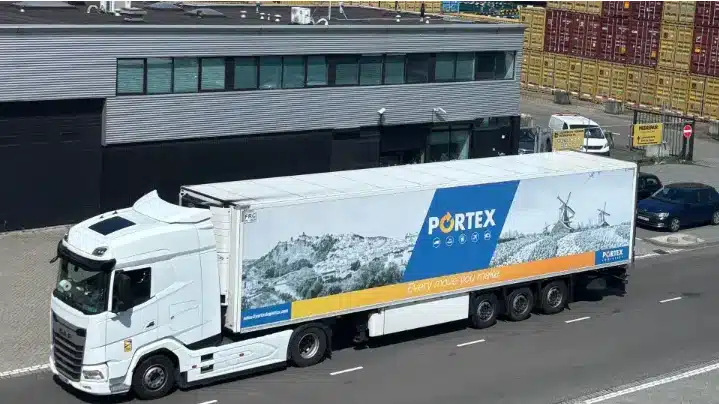Shipping to the Canary Islands can feel like a headache, especially if it’s your first time. But it’s easier than you think. If you’re shipping to the Canary Islands from the Netherlands, the key is to align your budget, speed, and sustainability goals with the right service. In this guide, we explain your options and how to choose them, so you can work confidently with reliable transport companies to the Canary Islands.

Shipping to the Canary Islands from the Netherlands: Which transport alternatives are available?
1) Ocean Shipping from Rotterdam/Antwerp to the Canary Islands (FCL & LCL)
One of the most common and cost-effective routes is by sea. From the Port of Rotterdam or Port of Antwerp, containers sail to the main ports in the Canary Islands. Ideal for larger or regular shipments, ocean freight balances price and reliability. Choose FCL (full container load) for full 20ft/40ft/40HC containers, or LCL/Groupage if you’re sending just a few pallets.
2) Road + Ocean via Algeciras: Netherlands & Belgium to the Canary Islands
For shippers across the Netherlands (and Belgium), multimodal (road + sea) can be a great fit. Your goods are collected at your warehouse, trucked to Spanish ports like Algeciras or Huelva, and then loaded onto a vessel bound for Tenerife, Gran Canaria, Lanzarote, Fuerteventura, and other islands. This route offers flexible pickup planning and smooth handover to ocean.
3) Air Freight from Schiphol to the Canary Islands (Urgent & High‑Value)
When timing is critical, air freight from Schiphol is fastest. It’s priced by kilogram and suits small, urgent, or high‑value shipments, ecommerce replenishments, or critical B2B parts.



What do you need to consider when choosing your transport modality?
Each option has its own logistics, paperwork, and budget profile. Here’s what to look at:
Ocean Freight: Cost‑effective and scalable
- Transit times: Typical sea transits range around 7–14 days depending on schedule and destination (e.g., Rotterdam → Tenerife/Las Palmas).
- Pricing: Most budget-friendly for higher volumes. Rates depend on lane and container size (20ft, 40ft, 40HC) and surcharges.
- Procedure: Stuffing at origin → port delivery → vessel loading → island port arrival → local delivery.
- Documentation: B/L (Bill of Lading), commercial invoice, packing list, export/import declarations.
- Container types: Dry, reefer (temperature-controlled), open-top/flat-rack for oversized.
Multimodal Road + Ocean: Flexible and direct
- Transit times: Slightly longer because of overland trucking, but predictable with scheduled sailings.
- Pricing: Mid-range, combining road linehaul + ocean freight + handling.
- Procedure: Warehouse pickup (NL/BE) → CMR for road → Spanish port handover → ocean leg → island delivery.
- Special cargo: ADR (dangerous goods), frigo (refrigerated), high-value require proper truck types, permits, and labeling.
Air Freight: Fast but priced by kg
- Transit times: Often 1–3 days door-to-door depending on space and connections.
- Pricing: Charged per chargeable weight (kg); higher cost but optimal for urgency.
- Procedure: Delivery to Schiphol → security & handling → flight → arrival clearance → last‑mile on the island.
- Documentation: AWB (Air Waybill), invoice, packing list, any permits.



What happens once your goods arrive at the Canary Islands?

Once the goods arrive to the port or airport arrival, you need to arrange national distribution inside the island. This involves smaller trucks, ferry inter-island options in some cases, and knowledge of local networks. Providers with on‑island partners ensure timely final‑mile delivery across Tenerife, Gran Canaria, Lanzarote, Fuerteventura, etc.
How can you arrange the entire process?
You have two paths:
- Do it yourself: Book each leg separately (pickup, trucking, container/ocean/air, customs, island delivery). You keep full control, but it’s time‑consuming and risky if you’re new to it.
- Work with a freight agent: A specialist manages the full chain for you, planning, bookings, customs, and last‑mile with trusted transport companies to the Canary Islands. This is the safest way to scale consistently.
What if I don’t need a full container or full truck?
That’s groupage (LCL/LTL). Send one or a few pallets without waiting to fill a container. You pay only for the space you use, both from the Netherlands to the Canary Islands and for on‑island delivery.
General tips for arranging transport to the Canary Islands
- Plan ahead to secure vessel slots or air capacity.
- Check customs & taxes: The Canary Islands use IGIC, which differs from mainland EU VAT—ensure your documents reflect this.
- Package & label for sea conditions and multi‑handling.
- Insurance: Consider cargo insurance for valuable/fragile goods.
- Visibility: Choose partners who provide track‑and‑trace and proactive updates.
FAQs: Transport to the Canary Islands from the Netherlands
| How long does shipping from the Netherlands to Tenerife take? Schedules vary by carrier and route, but oceangoing services typically take about 7–14 days port‑to‑port, plus pre‑/on‑carriage. |
| What documents are needed to ship to the Canary Islands? Commercial invoice, packing list, and depending on the mode: B/L (ocean) or AWB (air). Road legs use CMR. Include correct tax/tariff data given IGIC. |
| Can I ship a single pallet to Gran Canaria? Yes—use groupage (LCL/LTL) from the Netherlands. Your pallet is consolidated with others headed to the islands. |
| Is air freight worth it for small but urgent orders? Often yes. Air from Schiphol is the fastest and is priced per kg, ideal for urgent or high‑value shipments. |
| Do I need a reefer for chocolate or pharmaceuticals? Likely. Reefer containers (ocean) or temperature‑controlled air solutions keep sensitive goods within safe ranges. |
Ready to ship but don’t have a partner yet?
We can help.
At Portex , we’ve supported businesses with transport to Spain and the Canary Islands for over 20 years. Based in the Port of Rotterdam, we offer direct connections and a reliable network of island carriers. Whether you need FCL, LCL/groupage, road + ocean, or air freight from Schiphol, we manage the process end‑to‑end, from pickup to final delivery.
If you need transport to the Canary Islands from other destinations, that´s also possible.

